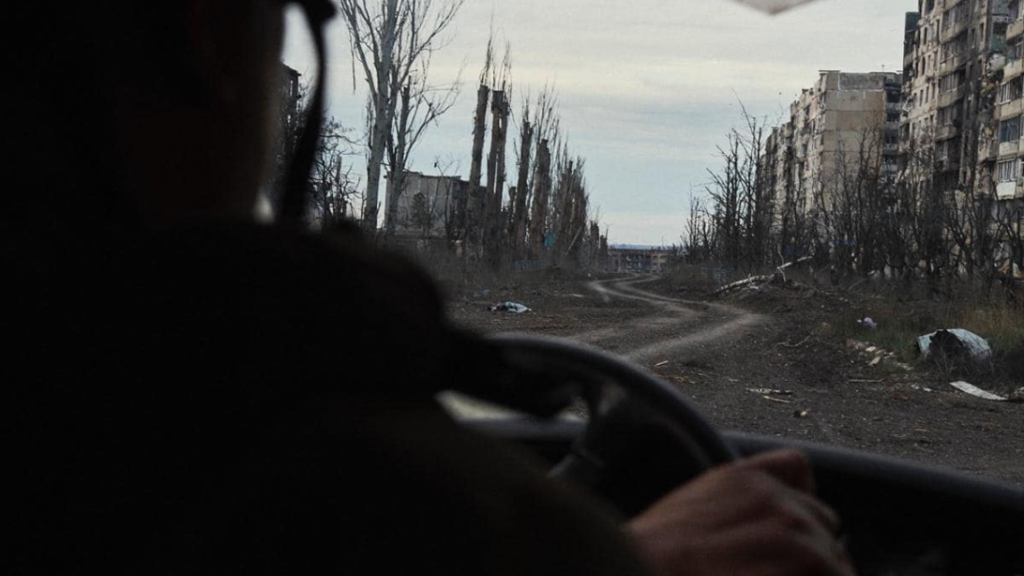Russian forces now have almost complete control of the eastern city of Vuhledar, which Ukrainian troops have been defending since the start of Moscow’s large-scale invasion.
Analysts from DeepState, a prominent group that monitors frontline developments in Ukraine, report that Russian forces have taken the city, although this has not been officially confirmed.
For more than two years, Russia has been trying to capture this city to advance further north and reach regional transport hubs such as Kurakhove and Pokrovsk.
Pro-Kremlin military bloggers have now posted several videos showing Russian soldiers with flags on the roofs of several buildings in Vuhledar.
Donetsk regional authorities confirmed on Tuesday that Russian troops had almost reached the city center, and some reports said Ukrainian forces were still holding out in some districts.
The BBC spoke to two soldiers from the 72nd Brigade who managed to leave the city before the final attack and take up new positions in the same area. They claim their troops have withdrawn from the city.
In recent days, Ukrainian soldiers had to find their own way out of Vuhledar on foot because it was impossible to evacuate them otherwise, said a machine gunner who spoke on condition of anonymity.
Many were injured and killed by Russian drones and artillery as they tried to leave, said another soldier, Roman. Many more are missing.


Moscow has launched numerous attacks to take the city since the large-scale invasion began in February 2022, but all have failed so far. Last year one of the largest tank battles took place there.
Instead of launching frontal attacks, the Russian army recently switched to its favorite tactic: advancing along the flanks to encircle the target. Last month they captured the village of Prechistivka in the west and Vodyane in the east to complete a pincer movement.
Moscow’s enormous advantage in weapons and troops (some soldiers estimate the troop ratio at seven to one) allowed them to break through the Ukrainian defensive lines along the flanks and close in on Vuhledar.
It became clear that the city was doomed when the Russians effectively cut off the only remaining lifeline route: the road from Vuhledar to Bohoyavlenka. Russian troops advanced so close that their artillery and kamikaze drones targeted anything and anyone moving along that path.
“We tried to send supplies and organize the evacuation of our wounded and dead soldiers, but without any success,” Roman said. “We lost a number of vehicles and then had to stop (such operations).”
According to Donetsk regional head Vadym Filashkin, there were still about 100 civilians in Vuhledar on Tuesday, out of a pre-war population of 14,000.
“Thank God we evacuated all the children. As for the 107 people who are still there, it is difficult to reach them and bring them humanitarian aid, drinking water and medicine because there is an active phase of the war going on.”


The situation became critical when Russian troops entered the city and Ukrainian units began to withdraw without waiting for the order to withdraw.
“If a withdrawal is not organized, it will become chaotic,” the machine gunner explained. Ukrainian defenders were like Titans trying to stop the Russians, he said. But some groups, he added, had become completely disoriented due to a communications breakdown. Their radios were turned off and when they came under heavy fire, they had to make quick decisions and often this meant withdrawing.
Ukrainian defense lines were devastated by Russian aviation bombs and thermobaric weapon systems such as the Solntsepek heavy flamethrower, in addition to drones and multiple rocket launchers.
Faced with such an attack, retreating from certain positions became inevitable, Roman argued. “You die or you retreat.”
But it was extremely dangerous to get out of an almost surrounded city. During the day it almost became a suicide mission.
The Ukrainian troops tried to escape mainly at night, having to cross minefields via designated paths to avoid the road, as it was closely watched by the Russians.
Until recently, evacuation vehicles could drive in under the cover of darkness with their headlights off, Roman explained. But once the Russian forces reached the center of the city, the only way to escape was on foot.
Those who managed to get out are exhausted and depressed. They are also angry with their commanders for not ordering the retreat sooner, claiming that it had been clear for some time that Ukrainian forces would not be able to hold the city for long.
“I don’t know why (they didn’t give the order),” the machine gunner said. “Maybe it’s fear of the military leadership or maybe it was an order from the top (to hold positions) with our blood until the end.”
Military officials from the 72nd Brigade and Ukraine’s Operational Command in the area declined the BBC’s request to comment.
In their most recent daily briefings, the Army General Staff remained silent about Vuhledar.
Wednesday morning’s briefing only stated that “the enemy carried out unsuccessful attacks on our positions in the direction of Bohoyavlenka,” without making any mention of the situation in Vuhledar.







